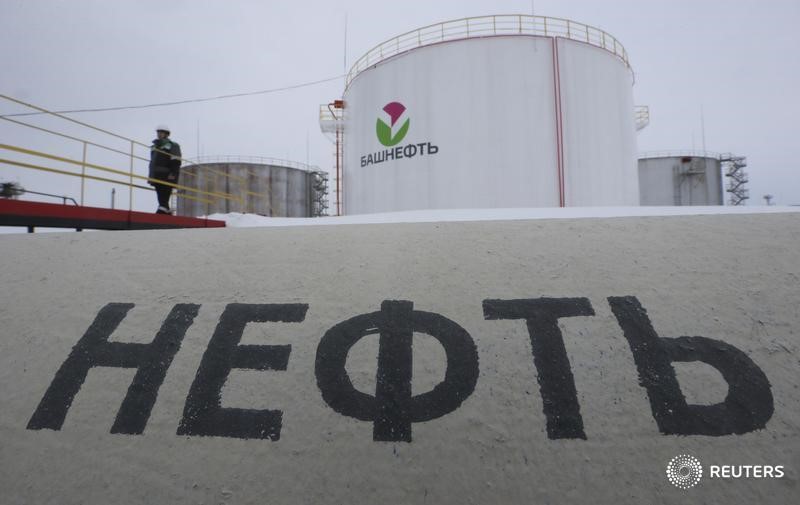By Geoffrey Smith
Investing.com -- Crude oil prices rose on Tuesday after Russia's state pipeline operator said it had stopped shipping oil through a key export link, blaming European sanctions on the country.
Transneft (MCX:TRNF_p) said it had stopped shipments through the southern branch of the Druzhba pipeline, which passes through Ukraine to feed Hungary, Czechia, and Slovakia, as of August 4, according to the news agency Interfax. It said the payment it had sent to its Ukrainian counterpart Ukrtransnafta had been refused due to complications with EU sanctions, and that Ukrtransnafta had subsequently stopped shipping due to non-payment.
Brent crude futures rose 1.4% to $97.94 a barrel in response to the news. That's their highest in nearly a week. U.S. crude futures meanwhile rose 1.3% to $91.92 a barrel, on fears that the development may signal a new stage in the economic conflict between Russia and Europe. While the EU intends to phase out imports of Russian oil and refined fuel by the year-end, it had carved out exceptions for those - such as the central European trio - who are particularly dependent on Russian supplies owing to being landlocked. The news hit the Hungarian and Czech currencies, pushing the forint down by over 1% against the euro, and the koruna down by 0.2%.
"The situation is complicated by the fact that European regulators have not yet adopted a unified position on the algorithm of actions (sic) for banks of various jurisdictions, nor have they established a procedure for issuing the required permissions," Interfax quoted Transneft's statement as saying. It didn't give any explanation of why previous months' payments had been processed without problems. Shipments through the northern branch of the Druzhba, which goes through Belarus to Poland and Germany, remain unaffected.
The development echoes Russia's action in cutting gas flows to Germany, Europe's largest energy consumer, less than two months ago - a move that gas monopoly Gazprom (MCX:GAZP) also blamed on sanctions-related bureaucracy. Germanry has dismissed such claims as politically motivated.
As such, the news raises fears that Russia may be intensifying its use of energy exports as a weapon to force the West to accept its ambitions in Ukraine. Foreign Minister Sergey Lavrov said last month that the country intends to secure control over southern Ukraine as well as the eastern Donbas region. Russia had also begun the process of cutting gas supplies earlier this year by singling out its smaller and less influential customers such as Denmark and the Netherlands, before expanding the cuts to Germany and Italy, its two biggest gas customers.
